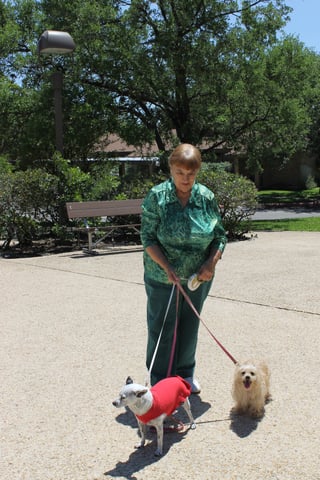Low vitamin D levels in seniors have been linked to everything from increased trips and falls to a greater risk of cognitive decline and dementia. Let's take a closer look at the importance of vitamin D, along with how caregivers can ensure that their aging loved ones are getting enough of this life-sustaining hormone.
Vitamin D-rich foods. The 411 on Vitamin D
The 411 on Vitamin D
Vitamin D plays a critical role in helping the body absorb calcium and build bone strength. It is also an important part of warding off diseases and promoting healthy nerve function.
Unfortunately, vitamin D is not found naturally in many foods. While cod liver oil, mackerel, tuna, salmon, cheese, egg yolks and beef liver are common sources of vitamin D, they do not typically provide adequate vitamin D levels. Other foods, including milk, cereal, and fruit juice drinks, are also fortified with vitamin D to help make up for the shortfall.
Despite fortified foods, vitamin D deficiency is widespread in the United States. And while it affects the entire population, as many as 95 percent of seniors may suffer from the condition, according to some estimates.
Sunlight and Vitamin D
Sunlight helps the body convert cholesterol into vitamin D, so this is a simple way to ensure that you get enough as long as you get outside. It takes up to 30 minutes of twice-weekly sun exposure to make the necessary amount of vitamin D.
 Everyone's happy to be outdoors soaking up the Vitamin D.
Everyone's happy to be outdoors soaking up the Vitamin D.
However, seniors who are housebound or who live in northern regions of the country may have additional concerns: regardless of the time spent outside, there just may not be enough sun during the winter months. Sunscreen also affects our ability to absorb sunlight; the exposure must be direct.
Vitamin D and Seniors
The increased risk of vitamin D deficiency begins around age 50 and continues to climb as we age.
Not only does the body lose its ability to synthesize vitamin D as we grow older, but seniors are also less likely to spend time in the great outdoors soaking up the sun. Furthermore, many medications commonly taken by seniors -- including everything from steroids to cholesterol-lowering drugs -- can interfere with the body's ability to absorb vitamin D.
According to Age and Ageing, "The clinical manifestations of suboptimal vitamin D levels has a significant physical, psychological and financial impact on older people and society as a whole." In fact, insufficient vitamin D levels have been associated with countless diseases, including everything from arthritis and osteoporosis to cancer and heart disease. Additionally, research published in the Journal of the American Geriatric Society determined that seniors with vitamin D deficiency were twice as likely to "self-report" respiratory disease.
Just how big an issue is vitamin D deficiency for seniors? The International Society For Clinical Densitometry has declared it to be "the silent epidemic of the elderly."
What Caregivers Should Know
Vitamin D supplements have proven benefits for seniors suffering from vitamin D deficiency. However, because it's possible to overdose on vitamin D supplements, talk to your aging loved one's health care provider about whether vitamin D supplements may be in order for your aging loved one.
While vitamin D deficiency affects millions of people, there are some things caregivers can do to ensure that their aging loved ones are getting enough. The next time you're considering that afternoon stroll in the sun keep in mind that it just may have a myriad of benefits...for both of you. Share this information within your social network to help spread the news about the critical importance of vitamin D for seniors. And don't forget to check out mmLearn's extensive catalog of online videos for caregivers.
